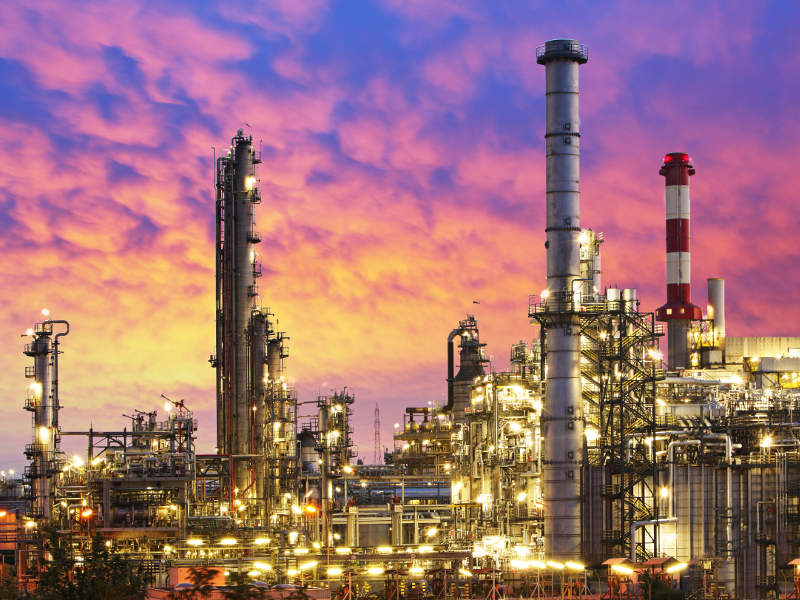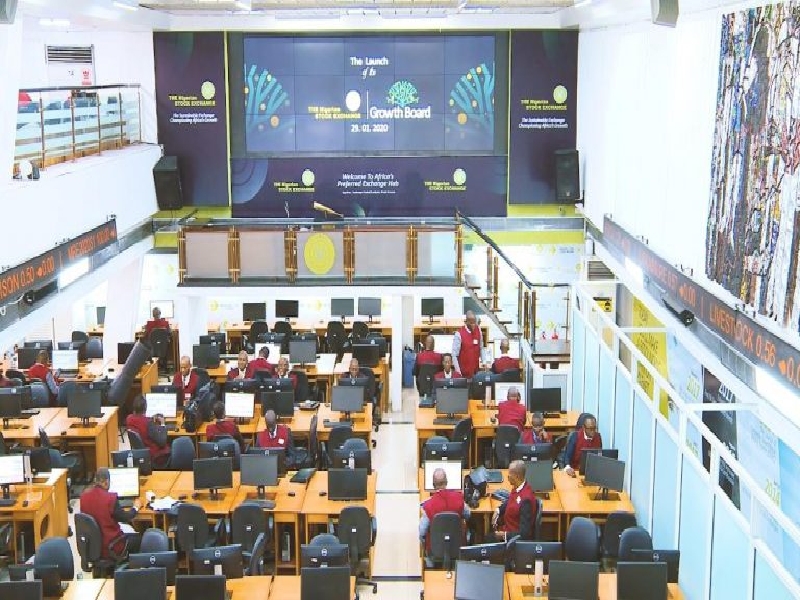Published
2 years agoon

Dangote Petroleum Refinery has received more up-votes as more economic groups and experts express optimism on its ability to unlock growth in the downstream sector of the Nigeria oil and gas industry.
Specifically, the Centre for the Promotion of Private Enterprise (CPPE), an economic advocacy group, has identified Dangote Petroleum Refinery as one of the key expected drivers of growth that would impact positively on the downstream sector of the Nigerian economy in 2022.
Likewise, Financial Derivatives Company Limited, a financial institution, in its recent Economic Report for 2022, expressed a firm belief that Dangote Refinery would boost the growth of the downstream sector of the economy and enhance petroleum products distribution across Africa.
The 650,000 barrels per day (bpd) Dangote Refinery, located in Lekki area of is primed to be Africa’s largest and is expected to commence operations this year.
The managing director/CEO of Financial Derivatives Company, Bismarck Rewane, however warned that the refinery, when operational, would not be a final solution to Nigeria’s economic crises.
According to him, the coming on stream of Dangote Refinery will no doubt enhance product distribution across Africa. Will Dangote refinery solve Nigeria’s problem? The answer is no. But the company is going to make Nigeria an exporter of refined petroleum products.
In a Nigeria Economic Outlook for 2022 released by the CPPE, its CEO, Dr. Muda Yusuf said an activation of the Petroleum Industry Act (PIA) in 2022 is expected to impact positively on the economic outlook.
“We expect to see positive outcomes as investor sentiments in the oil and gas sector improve on account of the reforms anchored on the PIA. This will however depend on the political will deployed to drive the implementation of the provisions of the Act. It is also expected that the coming on stream of the Dangote refinery in 2022 will also impact positively on the downstream sector of the economy,” he added.
He said, the average oil price in 2022 is expected to exceed the budgeted benchmark of sixty-two dollars ($62) per barrel, offering some fiscal headroom. This, he noted, would be powered by higher energy demand driven by the recovery of economic activities globally.
“This trajectory is expected to impact on our foreign reserve and strengthen the capacity of the Central Bank of Nigeria (CBN) to support the foreign exchange market,” Yusuf said.
He, however, added that, if the Dangote refinery comes on stream in 2022, the fiscal pressure on the economy may abate, but not completely eliminated.
According to the economist, because the service sector is less vulnerable to the structural constraints of the economy, especially the real sector of the economy, it will continue to outpace the real sector in 2022.
He said: “the service sector of the Nigerian economy will continue to outpace the real sector in 2022. In the third quarter of 2021, service sector contribution to GDP was 50 per cent and the growth of the sector was 8.41 per cent. Oil sector contribution to GDP was 7.5 per cent while the non-oil sector contribution was 92.5 per cent. While the industrial sector growth contracted by 1.63 per cent, agriculture grew by 1.2 per cent.”
Yusuf said the Gross Domestic Product (GDP) growth would remain fragile at about three per cent, pointing out that the key expected drivers of growth would be sustained recovery of global oil price.
“We expect that the average oil price in 2022 will exceed the budgeted benchmark of $62 per barrel, offering some fiscal headroom. This would be powered by higher energy demand driven by the recovery of economic activities globally.”
The economist noted that despite the downside risks, the economy would continue to present huge opportunities for investors across all sectors. “This is on account of the resourcefulness of the Nigerian people, especially the entrepreneurs. Other inherent strengths of the Nigerian economy include the market size, the population, and the demographic characteristics,” he added.
Meanwhile, recently, the executive director, Dangote Group, Mr. Devakumar Edwin said the 650,000 barrel per day refinery would stimulate economic development in Nigeria. He said the refinery was designed to process a variety of light and medium grades of crude and produce extremely clean fuels that meet Euro V specification.
He said usually, the sulphur in petroleum fuels results in vehicle exhaust emissions that have negative impact on health and environment, adding that the Dangote plant has invested in most advanced technology to produce Euro V fuel due to help Nigeria meet the European Standard of gasoline.
He said the project would provide thousands of direct and indirect jobs and add value to the Nigeria’s economic development, noting that the refinery will lead to significant skills transfer and technology acquisition opportunities in the country.
President of Dangote Group, Aliko Dangote disclosed that upon completion, the Dangote Refinery will meet 100 per cent daily Nigerian consumption of all refined products and would also have the surplus for export.
Dangote said, the Refinery and petrochemical projects include: world second largest Urea plant with capacity to produce three million tons per annum; the largest sub-sea pipeline infrastructure in any country in the world, 1100 km, to handle three billion scuf of gas per day; world scale gas treatment stations; world-class petrochemical complex; 480MW power plant and 500 KPTA polyethylene plant.
Also, the governor of Central Bank of Nigeria (CBN), Mr. Godwin Emefiele, during a visit to the Dangote Refinery, said, the projects on completion would also be expected to produce 883 KPTA polypropylene plant, three million tons per annum Urea plant and 1,100 kilometres sub-sea pipeline infrastructure.
The Dangote Refinery, when in operation, will be Nigeria’s first private and Africa’s largest petroleum refinery, with the expectation of a daily production capacity of 650,000 barrels per day.














